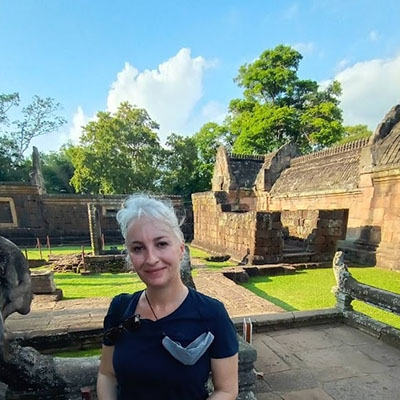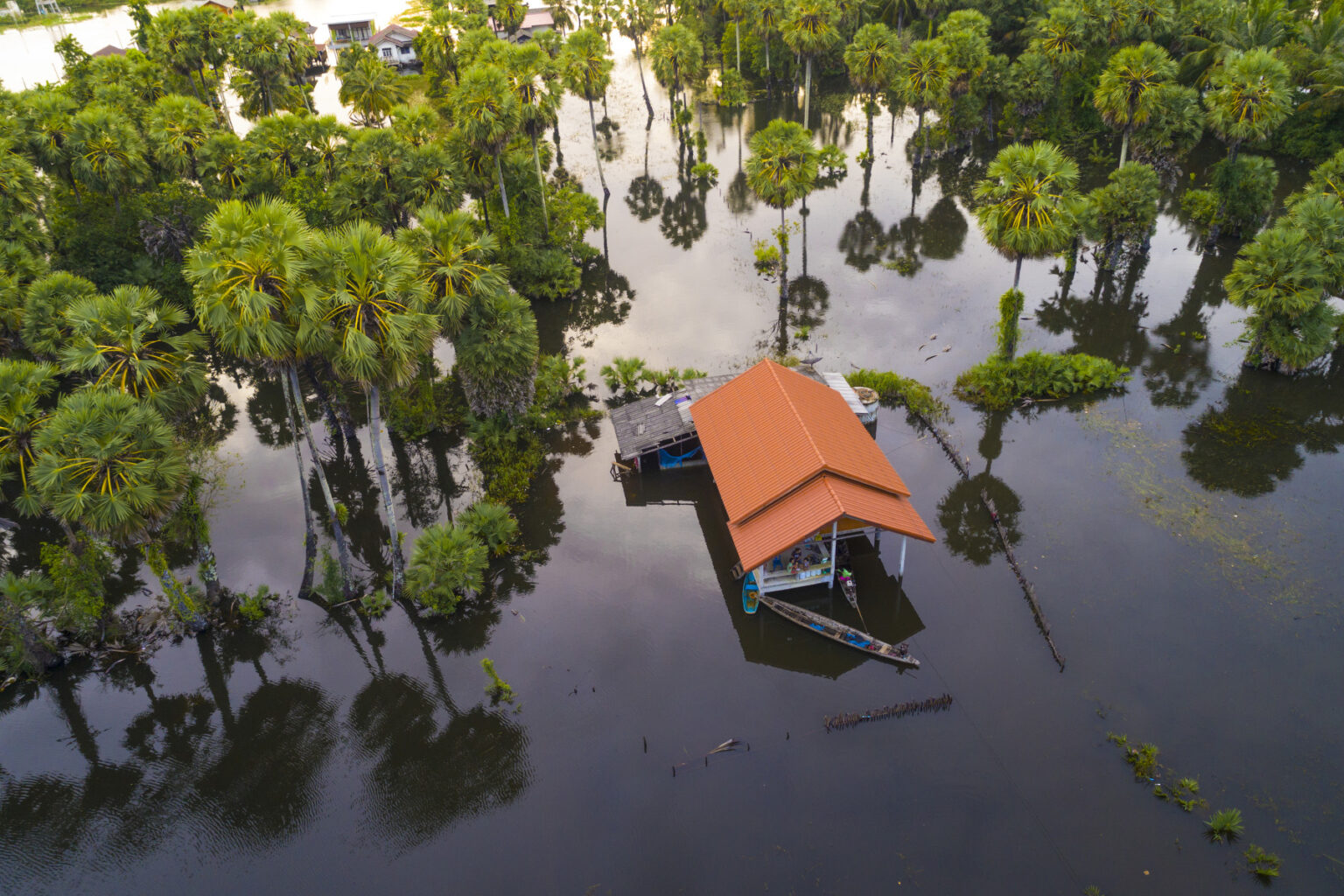Whether you’re moving to a new country or you’ve reached the age where you can no longer mooch of your parents, you’ll need to take out sufficient insurance (ประกัน). For example, if you own a car or property, you want to know you’re well-protected when the unexpected happens.
Luckily, Thailand has a competitive insurance market, so you’ll be able to compare policies and prices from different providers to choose the right coverage for you.
Read on to learn more about Thai insurance, including which are mandatory and which are optional:
FWD Thailand
If you need health insurance in Thailand, try FWD. Their Easy E-Health policy covers your for hospital stays, pre- and post-treatment examinations, and more. It also allows you to combine additional coverage so you’ll always be protected against extra costs. Apply for your Thai health insurance online with FWD.
Overview of insurance in Thailand
Thailand has a thriving insurance industry to protect against the insecurities of life, peaking at ฿285.5 billion in insurance premiums in 2023. And it doesn’t seem to slow down anytime soon. Projections by data analyst GlobalData suggest that the country’s general insurance sector will increase by 5.7% a year to reach ฿373 billion in 2027.
There are more than 70 local and international insurance companies operating in Thailand. The Office of Insurance Commission (OIC – สำนักงานคณะกรรมการกำกับและส่งเสริมการประกอบธุรกิจประกันภัย – คปภ.) is the industry’s main regulator and falls under the supervision of the Ministry of Finance (MOF). You can find a list of licensed companies on the OIC website.
The Thai General Insurance Association is the largest national trade association representing licensed companies, with over 50 members.

Thai laws divide the insurance market into life and non-life sectors. Life insurance policies (กรมธรรม์ประกันชีวิต) offer financial protection related to life, death, and disability. The general (non-life) insurance (ประกันวินาศภัย) sector contains a range of insurance products for added security, such as vehicle, health, marine and logistic, and fire insurance.
According to GlobalData, the most popular forms of coverage in 2022 were:
- Vehicle insurance (ประกันภัยรถยนต์) – accounting for 58% of premiums
- Personal accident and health insurance (อุบัติเหตุส่วนบุคคลและประกันสุขภาพ) – having an 18.4% share
- Property insurance (การประกันภัยทรัพย์สิน) – accounting for 16.8% of the total
Which insurance in Thailand is legally required?
Health insurance
All Thai citizens have the right to universal public healthcare, as do some internationals working in the public or civil service sector. Thailand’s healthcare system is funded through taxes, social security contributions, and health insurance (ประกันสุขภาพ). There are three primary insurance schemes: one for civil servants, another for private sector workers, and the Universal Coverage Scheme (UCS – โครงการความคุ้มครองสากล), which covers the rest of the population.
When you work for a Thai employer, you’ll be signed up for social security and be registered under the country’s public healthcare system. Employees contribute 5% of their income to the social security system. This is matched by your employer and topped up by the government.
Expats need proof of health insurance as part of their visa application. Even if you come in on a work visa and can access public healthcare through social security payments, you may need to take out private insurance to cover your initial period in Thailand.
If you don’t qualify for public healthcare (e.g., you’re in the country on a retirement visa), you’ll need private coverage amounting to at least ฿100,000. The benefits of private healthcare can include shorter waiting times, a greater range of treatments, and more English-speaking services. If you have no insurance coverage, you’ll only be able to receive emergency healthcare and will be billed for the costs.
Unemployment insurance
Under the Social Security Act B.E. 2533 (1990), salaried and self-employed workers are entitled to benefits if they become unemployed. The benefits are as follows:
- If you lose your job due to termination or natural disasters (e.g., fires, storms, or earthquakes), you are entitled to 50% of your wages for up to 180 days
- If your contract ends or you resign, you’re entitled to 30% of your wages for up to 90 days
To qualify, you must have made social security contributions for at least 12 months. Six of those must have been paid in the 15 months before you became unemployed.

Other requirements include:
- You must have lost your job due to legal reasons (in other words, you can be terminated, but not because of a work violation or criminal act)
- You must be employable, ready and willing to work, and cannot refuse to participate in any skill development or job training program
- You’ll need to register with the Government Employment Service Office and report your work status at least once a month
- You’ll need to apply within 30 days of your employment ceasing
- You cannot receive the Old Age Pension benefit simultaneously
While foreign workers and expats can also claim unemployment benefits, they must be recorded on a Tabien Baan (ทะเบียนบ้าน). This government-issued booklet lists all the people registered at a specific address in Thailand. Although the legal value of this document is quite limited, the Social Security Office might refuse your claim without it.

Local expert
Jane Evans
Insider tip
A Tabien Baan allows you to get a Thai ID card. This is useful because it can be used as ID (instead of a passport) at hotels and national parks. While it signals you’re an expat (and not a tourist), you’ll likely be charged the full tourist price for most things anyway.
Vehicle insurance
When you buy a car in Thailand or import one into the country, you must take out a vehicle or motor insurance. There are six main options, but only one – third-party liability insurance (การประกันภัยความรับผิดต่อบุคคลที่สาม) – is compulsory.
Mandatory insurance covers third-party property damage, the cost of medical treatment if anyone is injured in an accident involving your vehicle, and bail bonds. This is known as Compulsory Motor Insurance (CTPL – ประกันภัยรถยนต์ภาคบังคับ) or Por Ror Bor (พ.ร.บ.). Premiums start from as little as ฿581 a year. If you fail to take out this form of insurance, you could face a fine between ฿10,000 and ฿50,000.
As third-party liability insurance is minimal, it may be sensible to take out additional coverage. The main categories of motor insurance, from most basic to most comprehensive, are as follows:
- Type 3 and Type 3+ – Type 3 insurance covers third-party property damage. Type 3+ also covers damage to the insured vehicle in a collision.
- Type 2 and Type 2+ – Type 2 insurance covers fire and theft. Type 2+ also covers damage to the insured vehicle in a collision.
- Type 1 – Type 1 insurance covers all of the above plus any damage to the vehicle outside of a collision

The cost of insuring your vehicle in Thailand varies depending on a range of factors, including the vehicle type and age, the desired coverage, and your age, gender, and driving history. You can reduce your insurance premium by adding a higher deductible (หักลดหย่อนได้, hak lot yon dai – the amount you’ll need to pay when you make a claim) or installing a dashcam.
Optional forms of insurance in Thailand
Income protection insurance
Income protection insurance (ประกันคุ้มครองรายได้) can offer peace of mind if you are diagnosed with an illness or are involved in an accident. Policies provide a specific level of protection (e.g., up to 75% of your earnings) if you’re unable to work due to serious illness or injury.
If you’re older, you may find your options are more limited. You should consider taking advice from a specialist insurance broker (ผู้เชี่ยวชาญนายหน้าประกันภัย).
Property insurance
Home insurance (ประกันภัยบ้าน) isn’t required by law in Thailand. However, when you own a property, you should consider taking out property insurance to protect you against natural damage such as fires, floods, or storms. If you live in a condominium, this should be included in your management fees.
Household (or contents) insurance (ประกันครัวเรือน) is also available. This provides coverage for belongings in your home in instances of damage or theft. Additionally, you may wish to insure high-value items (such as mobile phones and jewelry) against damage and theft outside of your home.
Many insurers, banks, and mortgage lenders in Thailand offer property and household insurance plans. Your lender may also offer mortgage protection insurance (ประกันคุ้มครองจำนอง). This pays out if you’re unable to meet your mortgage repayments due to illness, disability, or death.
Life insurance
It’s not mandatory to have life insurance (ประกันชีวิต) in Thailand. However, some people find it beneficial to ensure their dependents have financial protection in case of their deaths. Many life insurance policies offer savings or investment components as well.

There are two main types of life insurance:
- Term insurance (ประกันระยะยาว) – policies cover a set period of time. If you die within this period, your family will receive an insurance payout.
- Whole life insurance (ประกันคุ้มครองชีวิตตลอดชีพ) – policies cover you for the rest of your life
You may be required to take a medical exam when you apply for life insurance. If your level of written Thai isn’t up to par, be sure to ask for an English translation before you sign any documents.
Some employers provide life insurance coverage of one to four years’ salary in the event of an employee’s death. Before taking out private coverage, be sure to check with your employer to see if they have a group life insurance plan.
Pet insurance
Pet owners may want to take out pet insurance (ประกันสัตว์เลี้ยง) to cover veterinarian bills and procedures. The main categories of pet insurance in Thailand are:
- Lifetime insurance (ประกันชีวิต) – covers the pet for their full lifespan
- Time-limited insurance (ประกันภัยแบบจำกัดเวลา) – covers the pet for a specific amount of time
- Accident-only insurance (ประกันอุบัติเหตุเท่านั้น) – offers fixed payouts in the event of emergency veterinarian care (including exam fees, diagnostics, and treatment for accidents and injuries)
Travel insurance
If you regularly travel abroad, you should consider getting annual multi-trip travel insurance (ประกันการเดินทาง). This protects against financial loss caused by delays, cancellations, and lost baggage. Some policies also offer protection against longer stays abroad due to natural disasters, medical expenses, and repatriation in case of injury or death.
Commercial insurance in Thailand
If you are self-employed or starting a business in Thailand, you may want to take out insurance to protect your company.

The main types of corporate insurance (ประกันภัยองค์กร) include:
- Liability insurance – public liability insurance is mandatory in Thailand. This protects your business against claims by third parties for injury, loss, damage of property, and death. If your company provides professional services or advice, you may wish to take out additional professional liability insurance. This protects the organization against financial and reputational loss in claims of negligence, misrepresentation, or inaccuracy.
- Social security and personnel insurance – it is compulsory for companies in Thailand to make social security contributions on behalf of their employees. Organizations must also provide accident and sickness coverage.
- Vehicle compensation – by law, business vehicles must have third-party vehicle insurance
- Property and contents insurance – corporations should take out property insurance to protect their assets during natural disasters, fire, or vandalism. While not mandatory, some banks might require it before they approve your mortgage or business loan. You can also insure valuable property such as company equipment.
- Interruption insurance – it may be beneficial to take out interruption insurance. This offers financial protection against loss of income if your company has to close or interrupt its services due to unforeseen circumstances (e.g., emergencies or flooding).
How to choose an insurance company in Thailand
When comparing insurers, you shouldn’t just go with the company that offers the lowest price. After all, it’s penny-wise and pounds foolish. As part of your research, you should consider the following:
- Inclusions and exclusions – a policy might seem reasonable at face value, but look carefully at the terms and conditions for notable exclusions. These could present a problem if you need to submit a claim.
- Check the deductible – when you make a claim on your insurance, you may need to pay a deductible to the insurer. This is a pre-agreed sum stated in your insurance policy. Choosing a policy with a higher deductible may reduce your premium but will ultimately cost you more.
- How the insurance company rates claims – some insurers deal with claims more quickly and efficiently than others. If the application process is particularly difficult or time-consuming, this could be a red flag that the claims process will be similarly frustrating. You should research online reviews from previous customers and (if available) check out independent rankings.
- English-speaking services – Thailand offers a mixture of local and international insurers, so finding an insurer that provides an English-speaking service should be relatively straightforward. When you sign up for a policy, make sure all documents are accompanied by an English translation.
Tools for comparing insurance in Thailand
You can find affordable insurance providers in the Expatica Directory or compare prices on a comparison website, such as CheckDi or Bolttech.

Well-known insurance companies that cater to expats in Thailand include:
How to complain about an insurer in Thailand
If you’ve run into an issue with an insurance company in Thailand, you should first contact the organization itself. You should state the reasons for your complaint and specify how you want the problem solved. If this doesn’t remedy the situation, you can file a complaint with the OIC.
You can contact them by calling the hotline (1186) or visiting an office. You can also submit a complaint online or by email. The OIC will examine the complaint under its dispute resolution process. First, it may seek to mediate between you and the company involved. If this fails, you can escalate the complaint to an independent arbitrator, who will help settle the matter.



